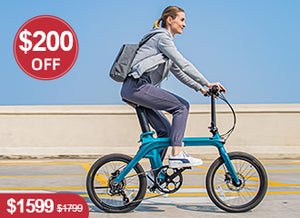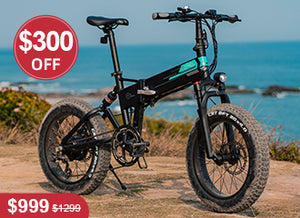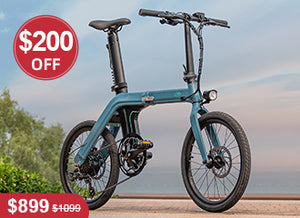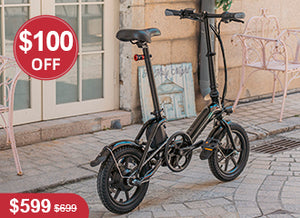Are Electric Bikes Street Legal? Understanding the Rules and Regulations
As the popularity of electric bikes (e-bikes) surges worldwide, it's crucial for enthusiasts and potential buyers to understand where and how they can legally use these innovative vehicles. This comprehensive guide delves into the legality of e-bikes on public roads, examining regulations across different regions, and highlighting what makes Fiido electric bikes a great choice within the legal frameworks.

Introduction
Electric bikes offer a blend of traditional cycling and motor-assisted speed, positioned as an eco-friendly alternative to motor vehicles and a more accessible option compared to standard bikes. However, the legal status of e-bikes can often be confusing due to varying regulations. Here, we explore these laws to demystify where and how you can ride e-bikes legally.
What Defines an Electric Bike?
Before diving into the legality, it's important to understand what an electric bike is. An e-bike features an electric motor that can assist in propelling the bike. There are primarily two types of e-bikes:
- Pedal-assist (Class 1 and Class 3): The motor only assists while you are pedaling and stops assisting once you reach a certain speed (20 mph for Class 1 and 28 mph for Class 3).
- Throttle-assist (Class 2): The motor can propel the bike without pedaling, up to 20 mph.
Legal Framework for E-Bikes
United States
In the U.S., the federal government defines e-bikes as bicycles with electric motors less than 750 watts and top speeds of 20 mph when powered solely by the motor. However, state regulations vary:
- Some states classify e-bikes based on the three-class system and specify where each class can operate (bike lanes, roadways, bike paths).
- Others require no registration, licensing, or insurance, treating e-bikes similar to bicycles, as long as they adhere to the federal definition.
European Union
In the EU, e-bikes that do not exceed 25 km/h and have a motor output of no more than 250 watts are considered bicycles. These do not require a license or registration. However, faster and more powerful e-bikes are classified as mopeds or motorcycles, necessitating compliance with more stringent regulations.
Canada
Canada's approach is similar to the EU, with most provinces allowing e-bikes with 500 watts of power and a maximum speed of 32 km/h to be ridden by anyone over 16 years old without a driver's license. Helmets are mandatory, and e-bikes must have pedals available for use.
Australia
Australian laws are strict with e-bikes limited to a motor output of 250 watts and a top speed of 25 km/h. Like in the EU, exceeding these limits reclassifies the e-bike as a motor vehicle, subject to registration and licensing.

Riding and Safety Requirements
Regardless of the region, safety remains paramount:
- Helmets are generally recommended or required.
- Age restrictions may apply, typically setting the minimum age at 16.
- Night riders should equip their e-bikes with lights and reflectors.
Global Variations and Local Laws
It's vital for e-bike owners to check specific local regulations which can vary even within countries. For example, some cities have unique rules regarding e-bike usage in pedestrian areas or specific roads.
Advantages of Choosing Fiido Electric Bikes
Fiido electric bikes are designed with compliance and convenience in mind, offering models that fit within the legal standards of many countries. Advantages include:
- Compliance: Fiido e-bikes are equipped with features that comply with global regulations, including speed limiters and required safety equipment.
- Versatility: Models like the Fiido D11 offer foldability for easy transport and storage, perfect for urban environments where space is at a premium.
- Extended Range: With high-capacity batteries, Fiido bikes can cover long distances on a single charge, making them ideal for longer commutes without the worry of frequent recharging.

Conclusion
Electric bikes present an exciting, eco-friendly mode of transportation, but understanding the legal landscape is crucial before hitting the road. Fiido electric bikes not only adhere to legal standards but also enhance the riding experience with their innovative designs and practical features. By staying informed about local e-bike laws, cyclists can enjoy the myriad benefits of electric biking with confidence and safety.
Would you like to explore more about specific regulations in your area, or need further details on any particular section?











